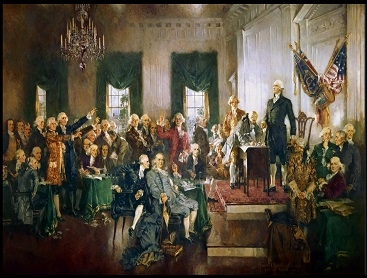
Do you remember the public discussions which went on for years about the proposed equal rights amendment to our federal Constitution? That’s how it’s supposed to be before an amendment is ratified: The People get an opportunity to hear the arguments, discuss it among themselves and their state legislators, and reject amendments which are bad.
What if someone found a way to circumvent this pesky public discussion, and get an amendment ratified before The People found about it? And even before the state legislators who ratified it found out what they had done? And what if this amendment delegated massive new taxing powers to Congress?
Such a scheme has been developed by Compact for America (CFA). They present their already prepared compact legislation to state legislators as a “balanced budget amendment”; and urge them to get it passed by their state legislature.
The provisions which authorize Congress to impose the new taxes, and which provide for pre-ratification of the new taxes amendment, are buried in some 15 pages of single-spaced excruciatingly convoluted and boring writing. Rare is the legislator who has the time to wade through the verbiage and figure out what it says. 1
Once three fourths of the States have passed CFA’s compact legislation, the new taxes amendment is thereby ratified.
So that’s how an amendment to our Constitution which delegates massive new taxing powers to Congress can be ratified before The People know what has been done to them; and before the state legislators who did it find out what they have done to the American People. 2
The scheme was passed several years ago by state legislators in Alaska, Georgia, Mississippi, and North Dakota; was passed this year by Arizona Legislators as HB 2226 and signed by the Governor of Arizona on March 30, 2017; 2 and is now pending in Missouri as SB 13, in Oklahoma as HB 1434, and in Texas as SB 959. Arkansas rejected it a week or so ago.
Let’s look at the particulars of the compact legislation using the Arizona Bill as the example.
HB 2226 does nothing to control federal spending or “balance the budget”
Section 1 of the Compact [page 2, line 16 of the pdf edition] allows Congress to spend as much as they take from us in taxes or add to the national debt! But that’s what Congress has been doing!
Sections 2 & 3 [page 2, lines 20-37] permit Congress to raise the debt whenever 26 States agree[…]



Facebook Comments